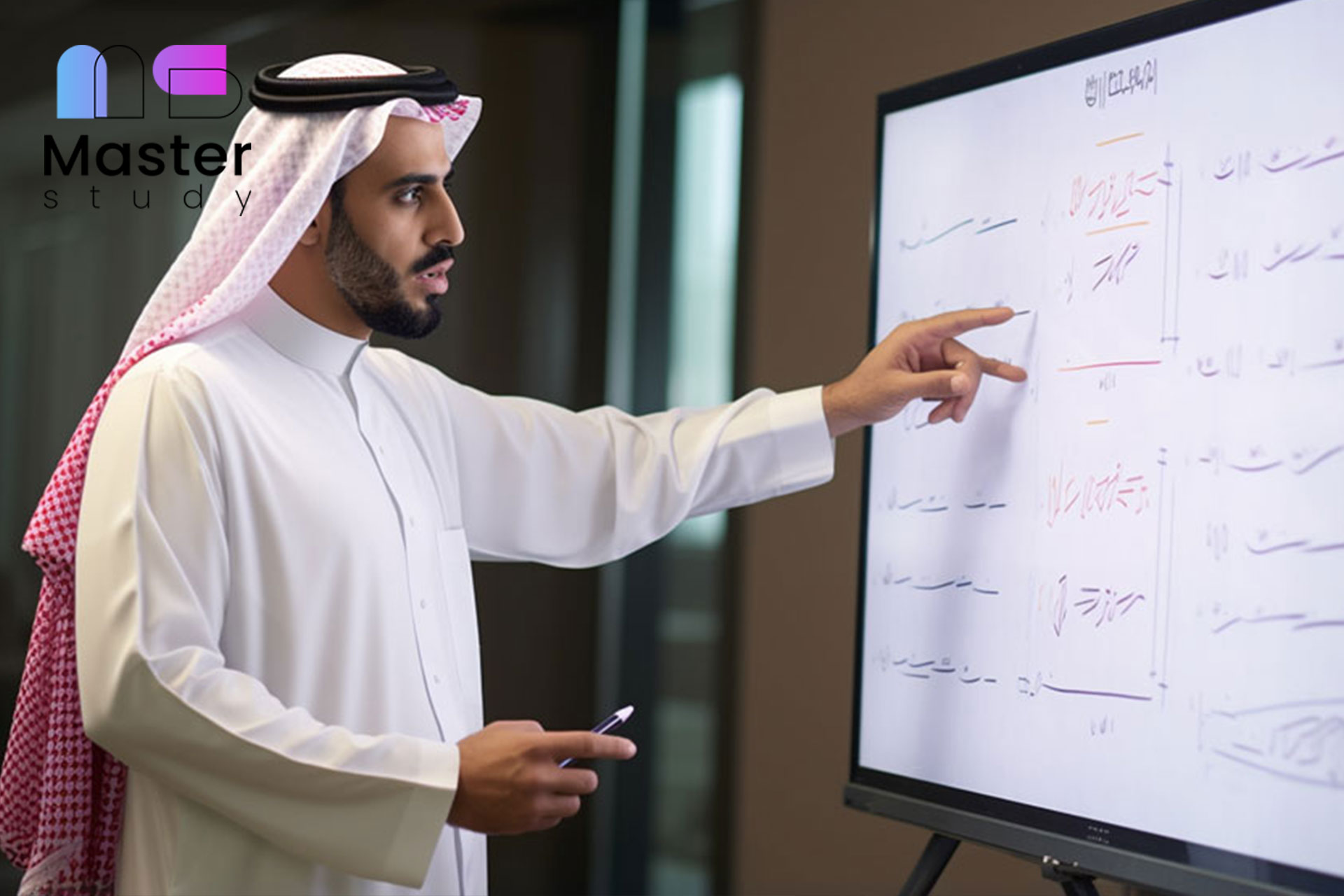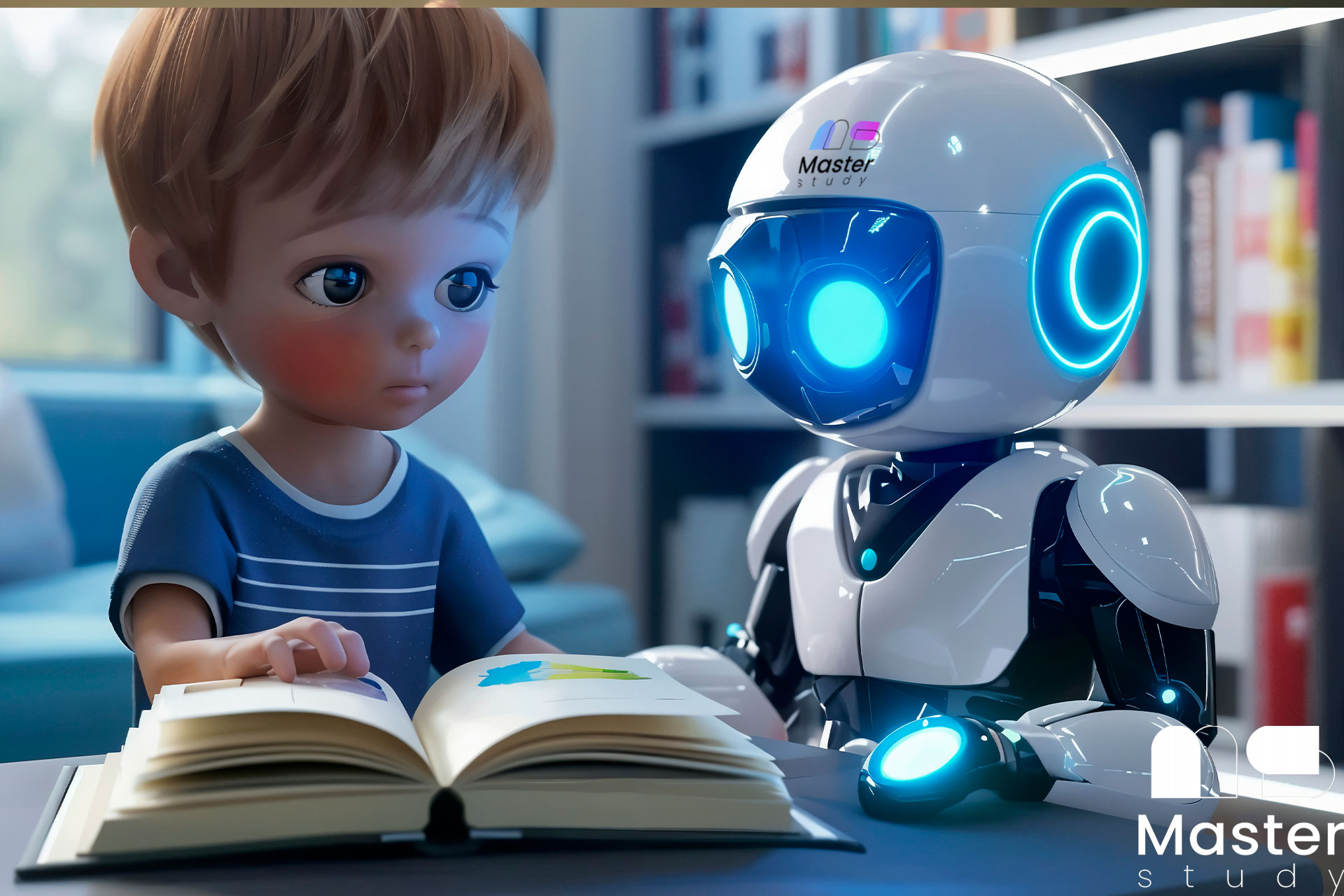Final Capstone Project: AI in Healthcare
The Final Capstone Project: AI in Healthcare by Master Study allows learners to consolidate and showcase their skills by building a complete AI solution tailored to the healthcare sector. Whether your focus is clinical text, medical images, genomics, or hospital operations, this project will simulate a real-world AI deployment challenge—from data handling to model evaluation and ethical review. This final challenge is designed to strengthen your portfolio, validate your skills for employers or research teams, and promote innovation in healthcare through AI.
AI in Drug Discovery & Genomics: Accelerating Precision Medicine with Intelligence
The AI in Drug Discovery & Genomics course by Master Study equips learners with a comprehensive understanding of how artificial intelligence is used to analyze biological data, identify therapeutic targets, and accelerate drug development. AI now plays a vital role in genomics, molecular modeling, biomarker discovery, and the design of personalized treatment strategies. This course offers a deep dive into how machine learning and deep learning models are integrated into bioinformatics workflows, from raw sequence analysis to the prediction of drug efficacy and toxicity.
Ethics, Bias, and Fairness in Medical AI: Designing Trustworthy Healthcare Systems
The Ethics, Bias, and Fairness in Medical AI course by Master Study dives into the critical issues surrounding the development and deployment of artificial intelligence in healthcare. As AI systems influence decisions in diagnostics, treatments, and patient monitoring, ensuring these technologies are fair, transparent, and accountable becomes essential. This course teaches how to identify, measure, and mitigate bias in medical datasets and algorithms while staying compliant with ethical standards and global health regulations. It emphasizes the human impact of AI in clinical environments and the importance of equity in innovation.
Tools and Platforms for Healthcare AI: Building Intelligent Medical Solutions
The Tools and Platforms for Healthcare AI course by Master Study equips learners with the knowledge and skills to work with state-of-the-art technologies used in developing AI-driven healthcare applications. From model training to secure deployment, this course covers the full tech stack needed to support diagnostics, treatment planning, and predictive analytics—while maintaining compliance with industry regulations. Whether you are building clinical decision support tools or wearable health apps, this course introduces the practical platforms and frameworks that bring medical AI to life.
AI-Powered Robotics & Assistive Technologies: Empowering Accessibility and Autonomy
The AI-Powered Robotics & Assistive Technologies course by Master Study explores how artificial intelligence and robotics are transforming healthcare, elder care, rehabilitation, and accessibility. From robotic arms for the disabled to voice-activated assistants and AI-powered wheelchairs, these technologies aim to enhance human independence and dignity. Learners will gain hands-on insight into developing, simulating, and deploying human-assistive robotic systems driven by smart sensors, adaptive control, and AI decision-making.
Natural Language Processing in Healthcare: Unlocking Insights from Clinical Text
The Natural Language Processing (NLP) in Healthcare course by Master Study explores how AI can extract structured insights from unstructured clinical texts like physician notes, discharge summaries, prescriptions, and radiology reports. You’ll learn how NLP enables better decision support, patient risk analysis, and population health management—while understanding the ethical and legal responsibilities of handling sensitive healthcare data.
Medical Imaging & Computer Vision: AI for Diagnostics and Analysis
The Medical Imaging & Computer Vision course by Master Study introduces learners to the powerful intersection of artificial intelligence and diagnostic imaging. Medical images—like X-rays, CT scans, and MRIs—contain rich clinical information that computer vision techniques can extract to assist in disease detection, classification, and monitoring. This course focuses on the technical, clinical, and ethical aspects of applying computer vision in healthcare, equipping learners with skills to build image-based AI tools for real-world medical applications.
Predictive Analytics in Medicine: Forecasting Health Outcomes with AI
The Predictive Analytics in Medicine course by Master Study gives learners the tools and techniques to forecast clinical events and patient outcomes using AI. By analyzing historical and real-time healthcare data, predictive models can help physicians identify at-risk patients, suggest timely interventions, and optimize treatment plans. This course combines medical knowledge, machine learning techniques, and ethical considerations to ensure accurate, actionable, and responsible predictions in real-world clinical settings.
Electronic Health Records (EHR) & Data Handling in AI-Powered Healthcare
The Electronic Health Records (EHR) & Data Handling course by Master Study introduces the foundational concepts behind managing, processing, and analyzing healthcare data—particularly EHRs used in hospitals, clinics, and AI systems. You’ll explore the structure of medical records, how data is stored and transmitted, and how to clean, secure, and use this data for applications like diagnosis prediction, patient monitoring, and treatment recommendations—all while remaining compliant with healthcare regulations like HIPAA and GDPR.
Final Capstone Project: AI for Robotics & Control Systems
The Final Capstone Project: AI for Robotics & Control Systems by Master Study is the ultimate hands-on challenge that brings together all the concepts, skills, and tools you've gained throughout your journey. This project-based course tasks you with designing and implementing a complete AI-enabled robotic system—from control design and perception to decision-making and deployment. You’ll plan, simulate, and test a system that demonstrates intelligence, autonomy, and real-time control, showcasing your readiness for careers in advanced robotics, embedded AI, and autonomous systems.
Real-Time Systems & Embedded AI: Intelligent Decision-Making at the Edge
The Real-Time Systems & Embedded AI course by Master Study introduces learners to the world of intelligent systems operating under strict timing and hardware constraints. Whether in drones, autonomous vehicles, wearable devices, or industrial automation, real-time embedded AI enables fast, localized decision-making. This course bridges the gap between machine learning and embedded system design—teaching you to build responsive, resource-efficient AI systems that run directly on microcontrollers or edge devices.
Simulation and Testing in Robotics: From Virtual Prototypes to Real-World Readiness
The Simulation and Testing in Robotics course by Master Study teaches learners how to build, validate, and improve robotic systems using realistic virtual environments before deploying to hardware. Simulation plays a critical role in reducing development risk, testing control logic, validating AI models, and speeding up innovation in robotics. You’ll explore top simulation platforms, integration with ROS, and best practices for testing everything from locomotion to sensor data and autonomous behaviors.
Kinematics and Motion Control: Guiding Robotic Movement with Precision
The Kinematics and Motion Control course by Master Study provides a strong foundation in how robots move in space. Whether it’s a robotic arm performing precise pick-and-place tasks or a mobile robot navigating through an environment, understanding kinematics and control laws is essential for creating smooth and accurate motion. This course covers key concepts such as forward and inverse kinematics, velocity and acceleration control, and trajectory generation, blending mathematical fundamentals with hands-on implementation.
Reinforcement Learning for Control: Teaching Robots to Act Through Rewards
The Reinforcement Learning for Control course by Master Study explores how trial-and-error learning can be applied to control problems in robotics, engineering, and automation. Rather than relying on pre-programmed rules, reinforcement learning (RL) allows systems to optimize their actions over time based on feedback from their environment. This course bridges control theory and machine learning, teaching learners how to use RL to manage tasks like balancing, locomotion, navigation, and decision-making in uncertain settings.
Machine Learning in Robotics: Teaching Robots to Learn and Adapt
The Machine Learning in Robotics course by Master Study introduces learners to how robots use machine learning to interpret their environments, make decisions, and improve over time. Whether navigating complex terrain, grasping objects, or learning from demonstration, robots today rely on ML techniques to move from programmed behavior to adaptive intelligence. You’ll gain practical experience with supervised, unsupervised, and reinforcement learning applications tailored for robotics systems.
Path Planning & Navigation: Guiding Intelligent Robots Through the World
The Path Planning & Navigation course by Master Study equips learners with the core tools and algorithms that allow mobile robots to move intelligently and safely through dynamic environments. From indoor mapping to autonomous driving, this course teaches how robots plan routes, avoid obstacles, and localize themselves in the world. You’ll work with classic and modern planning algorithms, real-time navigation strategies, and sensor-based adaptation, all through simulation and practical exercises.
Robotic Perception & Sensor Fusion: Enabling Machines to See and Understand
The Robotic Perception & Sensor Fusion course by Master Study introduces learners to the sensory systems that empower robots to perceive and interpret the physical world. From visual recognition to spatial awareness, perception is what allows robots to navigate, interact, and adapt intelligently. You’ll explore cameras, LIDAR, IMUs, GPS, and ultrasonic sensors, along with advanced sensor fusion algorithms that combine multiple data sources to deliver robust, real-time environmental awareness.
Fundamentals of Control Systems: The Backbone of Intelligent Automation
The Fundamentals of Control Systems course by Master Study provides learners with the foundational knowledge needed to understand and design automatic control systems used in robotics, aerospace, automotive, and industrial automation. This course covers key concepts such as feedback control, system modeling, and PID tuning, giving you the tools to stabilize, optimize, and command dynamic systems in real-time environments.
Introduction to AI in Robotics: Intelligent Machines in Motion
The Introduction to AI in Robotics course by Master Study gives learners a foundational understanding of how artificial intelligence enables robots to sense, think, and act in the physical world. You’ll explore how perception, planning, control, and learning all come together to create autonomous systems that operate in complex and dynamic environments—powering everything from robotic arms to self-driving cars and drones.
Final Capstone Project: Designing and Deploying a Complete AI System
The Final Capstone Project by Master Study is the culminating experience in your AI learning journey. This hands-on, self-directed course challenges you to design, build, and deploy a complete AI application or research project, applying the skills you’ve gained across NLP, computer vision, reinforcement learning, data processing, and model deployment. You’ll work through problem scoping, dataset preparation, model selection, training, evaluation, and deployment—producing a portfolio-ready project that demonstrates both technical skill and real-world application.




















